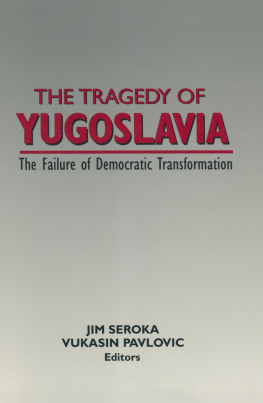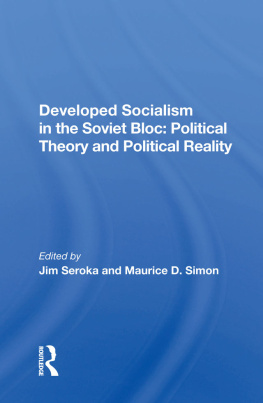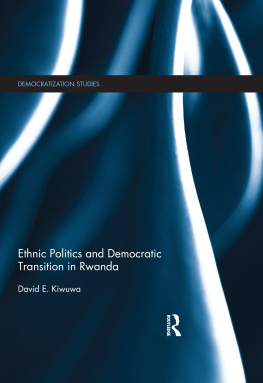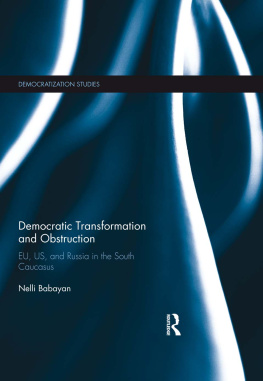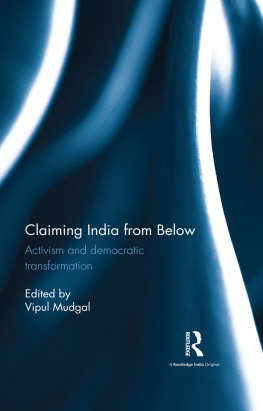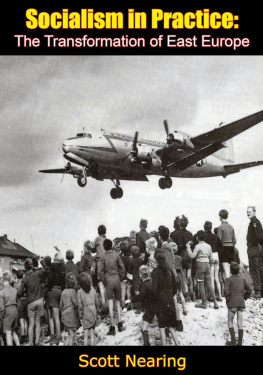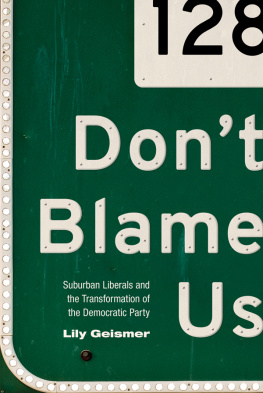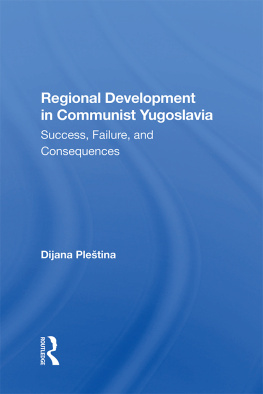First published 1992 by M.E. Sharpe
Published 2015 by Routledge
2 Park Square, Milton Park, Abingdon, Oxon OX14 4RN
711 Third Avenue, New York, NY 10017, USA
Routledge is an imprint of the Taylor & Francis Group, an informa business
Copyright 1992 Taylor & Francis. All rights reserved.
No part of this book may be reprinted or reproduced or utilised in any form or by any electronic, mechanical, or other means, now known or hereafter invented, including photocopying and recording, or in any information storage or retrieval system, without permission in writing from the publishers.
Notices
No responsibility is assumed by the publisher for any injury and/or damage to persons or property as a matter of products liability, negligence or otherwise, or from any use of operation of any methods, products, instructions or ideas contained in the material herein.
Practitioners and researchers must always rely on their own experience and knowledge in evaluating and using any information, methods, compounds, or experiments described herein. In using such information or methods they should be mindful of their own safety and the safety of others, including parties for whom they have a professional responsibility.
Product or corporate names may be trademarks or registered trademarks, and are used only for identification and explanation without intent to infringe.
Library of Congress Cataloging-in-Publication Data
The tragedy of Yugoslavia : the failure of democratic transformation / edited by Jim Seroka and Vukain Pavlovi.
p. cm.
Includes index.
ISBN 1-56324-035-1 (cloth)
ISBN 1-56324-392-X (pbk)
1. YugoslaviaPolitics and government1980
I. Seroka, Jim.
II. Pavlovic, Vukain.
DR1309.T7 1992
949.702'4dc20
92-23052
CIP
ISBN 13: 9781563243929 (pbk)
ISBN 13: 9781563240355 (hbk)
The essays in this collection were written before the outbreak of hostilities among the republics of Yugoslavia in 1991. In fact, the reader should be aware that this volume was conceived in March 1990, following a series of meetings of professional colleagues in Croatia, Serbia, and Slovenia. At that time, it seemed that civil war was only a remote possibility, and that pluralism and democracy were on the eve of an historic triumph. Yet, without exception, all of the contributors to the volume were concerned about the proliferation of disquieting signs. This book is a product of that concern and disquiet.
Each chapter should be read and understood in that historical context rather than as a reflection on more recent, tragic events. The editors decided to present the papers as submitted rather than try to update each piece continually. Taken together, the essays present a picture of the possibilities facing Yugoslavia just before the onset of an irrational, fratricidal struggle for power. The message each gives is clear: the leaders and the populations of the Yugoslav republics had a choice between peace and civil war. Sadly, their paths led to war.
This book does not pinpoint responsibility for the current bloodshed and destruction in Yugoslavia. If anything, it suggests that every actor, but particularly the new leaders in the republics, must bear some responsibility for failures of will, of courage, and of statesmanship. As pointed out repeatedly in this volume, heroism was not a factor in the Yugoslav political equation. The Yugoslav republics in this critical period had no Havel, no Walesa, not even the quiet heroism of East Germany's Evangelical ministers. Neither the Patriarch in Belgrade nor the Cardinal-Primate in Zagreb did much to brake the acceleration toward bloodshed. Scholars in the republican academies of sciences rewrote history to encourage the forces of destruction. Political parties competed to exclude minorities from the political process. Media professionals shifted their allegiances to defend whatever government was in power. Former dissidents who were assuming positions of responsibility in the new regimes generally practiced the same type of intolerance and authoritarianism they had experienced under their Communist persecutors.
Civil war in Yugoslavia was not inevitable, but courage was needed to stop this slide toward barbarism. Sadly, courage was lacking at this critical time. Tragically, the leaders of the republics have no one to blame but themselves.
The essays in this volume will be of interest to anyone who is seeking an explanation for the failure of Titoist federal and nationality policies and the breakup of the Yugoslav community. In the first piece, Vladimir Goati shows the shallowness of the commitment to democracy and pluralism in Yugoslavia. Next, Mirjana Kasapovic underscores the need for leadership and strong institutions to rebuild political society and withstand the slide toward authoritarianism. Tomaz Mastnak highlights how the immaturity of the anti-communist opposition impeded the capacity to remake and rebuild civil society in Slovenia. My contribution points up the need for strong political competition and the dangers that accompany monolithic anti-communism. Vesna Pusic suggests that the future of pluralist democracy in Yugoslavia depends upon the commitment of new groups, for example the commercial elite, to involvement in the new political processes. Anton Bebler aptly predicts that the Yugoslav army would remain committed to the Yugoslav ideal but unable to impose its will on all segments of society. The degenerative impact of nationalism on multi-party democracy is underscored by Ivan Siber. Finally, Vucina Vasovic stresses the need to develop intermediate social groups to prevent the resurgence of new authoritarian entities.
The collection includes two authors each from Croatia, Serbia, and Slovenia, but it does not pretend to reflect the diversity of opinion in those republics. Each author has analyzed events from his or her own perspective; none has used this book as a forum to present a partisan political program.
We dedicate this volume to those who believe that men and women can control their destiny, and that they and their children can build a future of peace, security, and good will for all.
* * *
The editors want to express their appreciation to Matteel Jones for assistance in the preparation of the manuscript. We are also indebted to Danka Firaunovic, Executive Secretary of the Yugoslav Political Science Association.
The American editor would like to take this opportunity to apologize for any mistranslations from the original Serbian and Croatian languages and for any misunderstandings that may have resulted from this editorial process. Any errors are unintentional and he takes full responsibility for them in advance.
Note on Acronyms
Explanations of the many acronyms that appear throughout the text may be found in the index entries (pp. 199-208).
THE TRAGEDY OF YUGOSLAVIA

